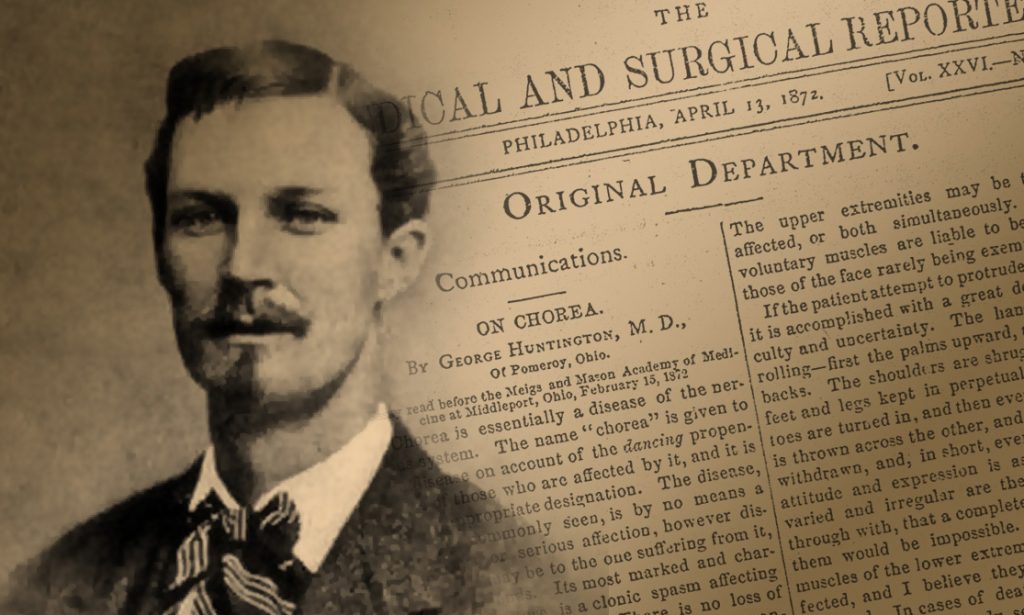Huntington’s Disease Awareness Month and Clinic
Huntington’s disease patients and families require special attention and care. Month of ‘May’ is #HDawareness month. There are various activities going on world wide during this #Lockdown time to create more awareness about #Huntingtonsdisease.
We are running the special Huntington disease clinic every fourth Wednesday of the month. This is a FREE CLINIC for Huntington’s disease patients and families. Dr. Prashanth LK is European Huntington Disease Network Associated member and credentialized investigator of Huntington Study Group.
Huntington disease is named after George Huntington (April 9, 1850 – March 3, 1916) was an American physician from Long Island, New York who contributed the clinical description of the disease. Dr. Huntington wrote his paper “On Chorea” when he was 22 years old, and was first published in the Medical and Surgical Reporter of Philadelphia on April 13, 1872.
Huntington’s disease usually causes movement, cognitive and psychiatric disturbances with a wide spectrum of signs and symptoms. Which symptoms appear first varies greatly among affected people. During the course of the disease, some disorders appear to be more dominant or have a greater effect on functional ability.

Movement disorders
The movement disorders associated with Huntington’s disease can include both involuntary movement problems and impairments in voluntary movements, such as:
- Involuntary jerking or writhing movements (chorea)
- Muscle problems, such as rigidity or muscle contracture (dystonia)
- Slow or abnormal eye movements
- Impaired gait, posture and balance
- Difficulty with the physical production of speech or swallowing
Impairments in voluntary movements — rather than the involuntary movements — may have a greater impact on a person’s ability to work, perform daily activities, communicate and remain independent.
Cognitive Symptoms (Memory related)
Cognitive impairments often associated with Huntington’s disease include:
- Difficulty organizing, prioritizing or focusing on tasks
- Lack of flexibility or the tendency to get stuck on a thought, behavior or action (perseveration)
- Lack of impulse control that can result in outbursts, acting without thinking and sexual promiscuity
- Lack of awareness of one’s own behaviors and abilities
- Slowness in processing thoughts or ”finding” words
- Difficulty in learning new information
Behavioral Symptoms:
The most common psychiatric disorder associated with Huntington’s disease is depression. This isn’t simply a reaction to receiving a diagnosis of Huntington’s disease. Instead, depression appears to occur because of injury to the brain and subsequent changes in brain function. Signs and symptoms may include:
- Feelings of irritability, sadness or apathy
- Social withdrawal
- Insomnia
- Fatigue and loss of energy
- Frequent thoughts of death, dying or suicide
Other common psychiatric disorders include:
- Obsessive-compulsive disorder — a condition marked by recurrent, intrusive thoughts and repetitive behaviors
- Mania, which can cause elevated mood, overactivity, impulsive behavior and inflated self-esteem
- Bipolar disorder — a condition with alternating episodes of depression and mania
In addition to the above symptoms, weight loss is common in people with Huntington’s disease, especially as the disease progresses.
Symptoms of juvenile Huntington’s disease
The start and progression of Huntington’s disease in younger people may be slightly different from that in adults. Problems that often present themselves early in the course of the disease include:
Behavioral changes
- Loss of previously learned academic or physical skills
- Rapid, significant drop in overall school performance
- Behavioral problems
Physical changes
- Contracted and rigid muscles that affect gait (especially in young children)
- Changes in fine motor skills that might be noticeable in skills such as handwriting
- Tremors or slight involuntary movements
- Seizures






